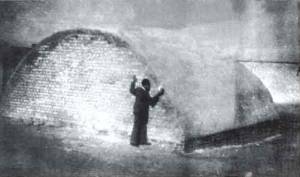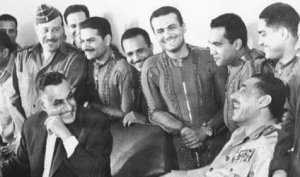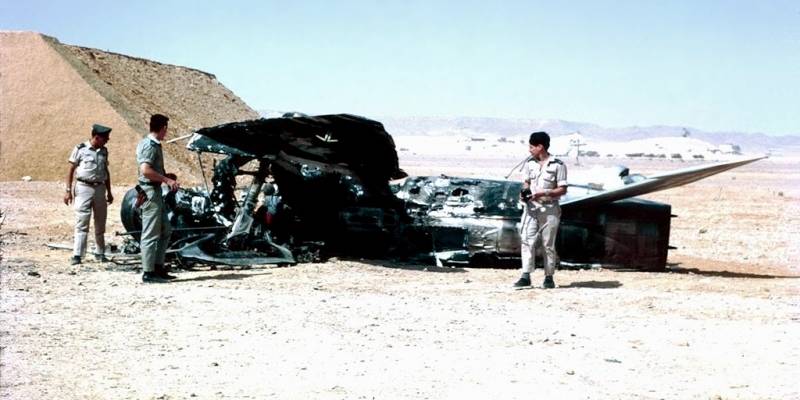
This week in Israel’s History: Farhud Pogrom breaks out in Baghdad; the commencement of the 1967 Six Day War.
June 1, 1941 – Farhud Marks End of Jewish Life in Iraq

A mass grave for the victims of the Farhud, Baghdad, Iraq, June 1941. (wikipedia)
Known as the beginning of the end of the Jewish community of Iraq, the Farhud was a pogrom, or “violent dispossession” carried out against the Jewish community in Baghdad on the Jewish holiday of Shavuot, June 1 and 2, 1941.
Over 180 Jewish people were killed and more than 1,000 injured. It is estimated that more than 500 Jewish businesses were looted and 900 Jewish homes destroyed. It was the worst riot against the Jewish community in Iraq in at least 100 years.
The riots were sparked by the British victory in the Anglo-Iraqi war and fueled by allegations that Iraqi Jews had assisted the British. Interestingly, and less well-known, the Nazis were also behind the effort to terrorize the Jews of Baghdad.
Until the mass exodus of Jews from Iraq in the early 1950s, the Jewish community there was the world’s oldest and one of the most significant, having begun at the time of the Babylonian exile from Israel in 586 BCE. In 1950, the Jewish community in Iraq numbered over 150,000.
June 5, 1967 – The Six Day War Begins
The Six Day War is considered one of the most miraculous events of the modern state of Israel. Within six days, the IDF routed the Sinai Peninsula, liberated the Old City of Jerusalem and the entire west bank of the Jordan River – Judea and Samaria, the biblical Jewish heartland – and gained control over a large part of the Golan Heights.
As the summer of 1967 approached, Egyptian forces began mobilizing along the Israeli border in the Sinai Peninsula, causing concern to Israel’s military officials.

On 22 May 1967, President Nasser addressed his pilots at Bir Gafgafa airbase in Sinai: “The Jews are threatening war – we say to them, welcome! (Wikipedia)
Not wanting to wait for the country to be devastated by the Egyptian forces, Israel launched a series of preemptive airstrikes against Egyptian airfields. The Egyptians were caught by surprise and nearly its entire air force was destroyed, giving Israel a serious advantage in the imminent attack by the surrounding Arab states.
After Jordan and Syria joined in the conflict on the same day, Israel launched an offensive to surround eastern Jerusalem and two days later, recaptured the Holy City. After routing the Egyptian Air Force, invading the Sinai Peninsula, recapturing Jerusalem and taking the Golan plateau, a ceasefire was finally signed on June 11, just six days after Israel’s initial strike on Egypt.
It is believed that if not for Israel’s quick action, the war would have turned out much differently. In the end, fewer than a thousand Israelis were killed in the fighting, compared with over 20,000 from the Arab forces.










